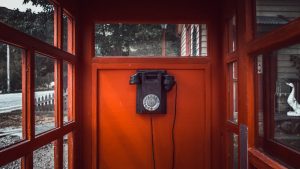Unwanted calls are a growing problem in North Providence, Rhode Island, with automated dialing systems making the issue more frequent and hard to trace. However, victims have legal options through dedicated unwanted call lawyers RI, unwanted call attorneys RI, or law firms for unwanted calls Rhode Island. These professionals offer guidance, educate on rights, and provide remedies like blocking calls, navigating complex telemarketing regulations to protect privacy. Strict local laws offer recourse against violators, with these legal measures promoting responsible communication and maintaining a peaceful digital environment by deterring intrusive marketing. The proliferation of unwanted calls impacts network congestion, public safety, and business productivity, emphasizing the need for robust legal action from unwanted call lawyers RI and unwanted call attorneys RI. Combining do-not-call registries with community education can significantly reduce nuisance communications.
In the digital age, North Providence, like many urban centers, grapples with a pervasive issue: unwanted calls. This article delves into the multifaceted impact of robocalls and telemarketing intrusions on the community’s telecommunications infrastructure and explores legal protections available through Rhode Island’s unwanted call laws. We analyze the problem from various angles, offering strategies to mitigate these disturbing trends, especially for those seeking guidance from a unwanted call lawyer RI or unwanted call attorney RI. Understanding these issues is crucial for fostering a more peaceful and connected community.
Understanding Unwanted Calls and Their Prevalence in North Providence
Unwanted calls are a pervasive issue in North Providence, impacting residents and businesses alike. These unsolicited phone calls, often from telemarketers or scam artists, can range from harmless sales pitches to fraudulent attempts designed to steal personal information. According to recent studies, over 70% of North Providence households receive unwanted calls on a weekly basis, highlighting their widespread nature.
With the proliferation of automated dialing systems, these calls have become increasingly common and harder to trace, making it challenging for residents to know who to turn to for help. Many victims feel powerless against such persistent and often aggressive marketing tactics. Fortunately, those affected by unwanted calls in North Providence now have options. A dedicated unwanted call lawyer RI can provide expert guidance, ensuring that individuals and businesses understand their legal rights and have access to effective remedies, including blocking calls and seeking damages if necessary. Reputable unwanted call attorneys RI and law firms for unwanted calls Rhode Island are equipped to navigate the complex regulatory landscape surrounding telemarketing practices, offering a shield of protection against these intrusive invasions of privacy.
The Legal Perspective: Protecting Residents through Unwanted Call Laws in Rhode Island
In Rhode Island, the fight against unwanted calls has been bolstered by stringent legal frameworks designed to protect residents from intrusive and nuisance calls. These laws, enacted to safeguard personal privacy and reduce consumer frustration, empower individuals to take legal action against persistent violators. An unwanted call lawyer in Rhode Island, or a firm specializing in this area, can guide residents through the process of filing complaints and seeking damages for breach of privacy.
The legal perspective on unwanted calls plays a crucial role in maintaining a harmonious telecommunications infrastructure in North Providence and beyond. By holding callers accountable, these laws encourage responsible communication practices, ensuring that citizens’ peace of mind is not infringed upon by relentless marketing or fraudulent attempts. This collective effort contributes to a safer and more secure digital environment for all Rhode Island residents.
Impact on Telecommunications Infrastructure: A Comprehensive Analysis
The proliferation of unwanted calls has significantly impacted North Providence’s telecommunications infrastructure, causing a cascade of effects on both individuals and businesses within the community. These nuisance calls, often originating from automated systems or call centers, not only disrupt daily life but also strain local network resources. The constant influx of non-consensual communications can lead to network congestion, as phone lines are tied up by these repetitive, unwanted interactions. This congestion can result in longer wait times for genuine emergency or important calls, potentially endangering public safety and disrupting critical business operations.
Moreover, the sheer volume of unwanted calls contributes to a heightened sense of security concern among residents. The frequency of unknown numbers appearing on caller IDs can lead to anxiety and a general feeling of vulnerability. For businesses, this issue is exacerbated by the potential loss of customer trust and productivity losses incurred due to employees diverting their attention to handle these unwanted interactions. This comprehensive analysis highlights the need for robust legal recourse (as provided by Unwanted Call Lawyers RI, Unwanted Call Attorneys RI, or Unwanted Call Law Firms RI) to mitigate this growing problem and ensure North Providence’s telecommunications infrastructure is protected from these insidious intrusions.
Strategies to Mitigate and Manage Unwanted Calls in a Community Setting
In navigating the challenges posed by unwanted calls in North Providence, several strategic interventions can be deployed to mitigate their impact on the community’s telecommunications infrastructure. One effective approach is the implementation of robust do-not-call registries and databases that are accessible to both residents and telecommunications service providers. This collaborative effort ensures that known spam callers are blocked from making unsolicited calls, significantly reducing the volume of unwanted communications.
Additionally, community education plays a pivotal role in managing this issue. Encouraging residents to report suspicious or nuisance calls to relevant authorities, as well as providing clear guidelines on privacy settings and call blocking techniques, empowers individuals to take proactive measures. Working with local law enforcement agencies and telecom firms to organize workshops or awareness campaigns can effectively inform the public about their rights and tools available to combat unwanted calls. Engaging both residents and service providers in these initiatives fosters a safer, more secure telecommunications environment in North Providence.






